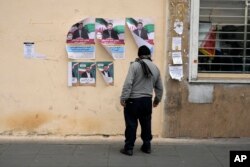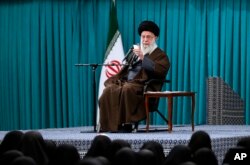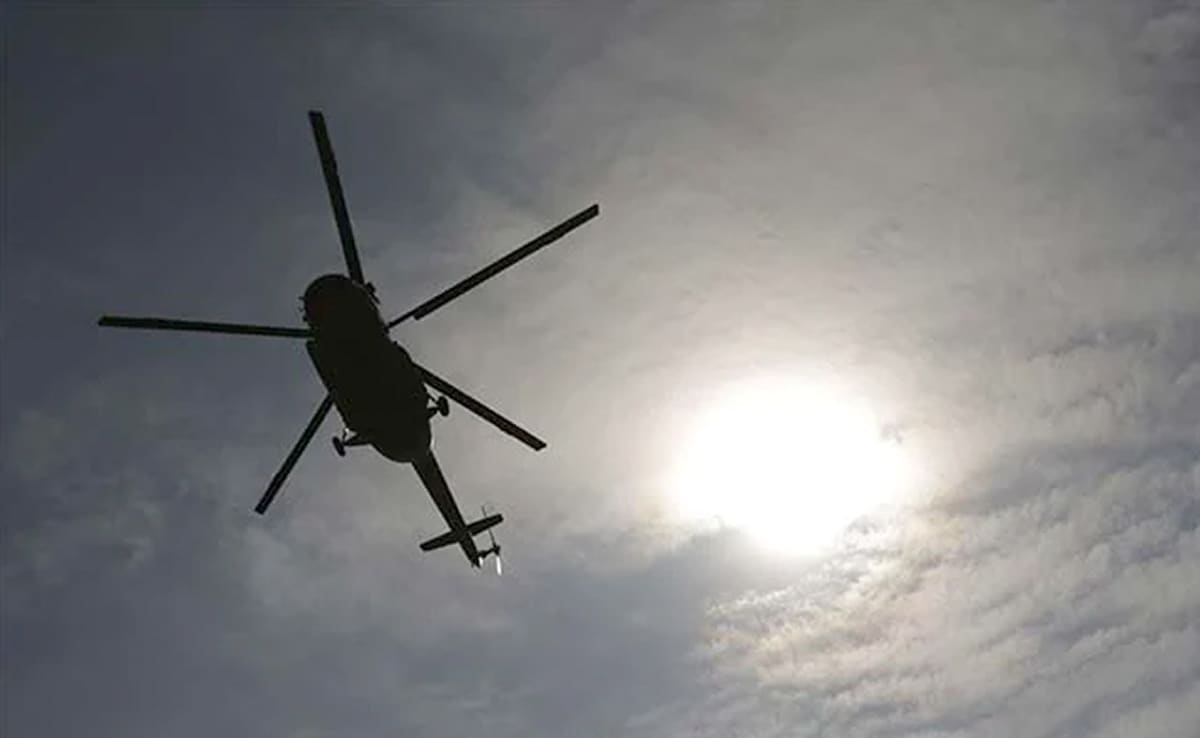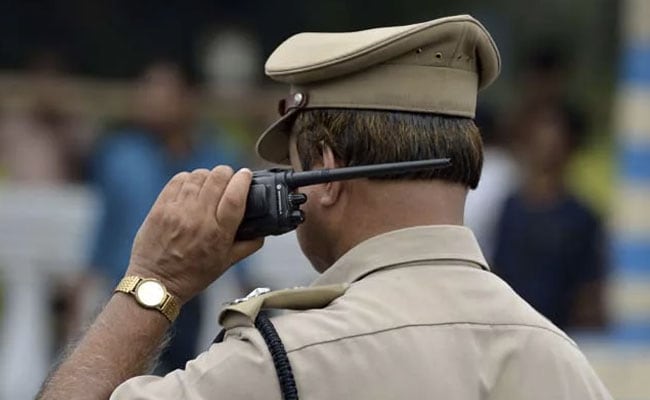Iran is holding parliamentary elections this Friday, but the real question may not be who is elected, but how many people actually go to the polls.
Many people have quietly said they will not vote in this election amid widespread dissatisfaction with a collapsing economy, years of massive protests that have rocked the country, tensions with the West over Tehran’s nuclear program and Iran’s support for Russia’s war in Ukraine.
Officials are urging people to vote, but it is worth noting that the state-run voting center ISPA has not released information on expected turnout this year – a consistent feature of past elections. The Associated Press recently interviewed 21 Iranians, only five of whom said they would vote. Thirteen said no, and three said they were undecided.
“If I protest for certain shortcomings, many police and security personnel will try to stop me,” said Amin, a 21-year-old university student who gave only his first name for fear of reprisals. “But if I starved to death on the corner of a main street, they wouldn’t have any reaction.”
More than 15,000 candidates are vying for seats in the 290-member parliament, officially known as the Islamic Shura Council. The term is four years, with five seats reserved for Iran’s religious minorities.
By law, Parliament oversees the executive branch, votes on treaties and deals with other issues. In fact, absolute power in Iran lies in the hands of its supreme leader, Ayatollah Ali Khamenei.
Hardliners have controlled parliament for the past two decades, where chants of “Death to America” are often heard.
Led by parliament speaker Mohammad Bagher Qalabaf, who supported a violent crackdown on Iranian university students in 1999, the legislature introduced a bill in 2020 that would significantly restrict Tehran’s Cooperation with the United Nations nuclear watchdog, the International Atomic Energy Agency.
In 2018, then-President Donald Trump unilaterally withdrew from Iran’s nuclear deal with world powers, a move that sparked years of tensions in the Middle East and led Iran to enrich enough uranium at record-breaking purity to ” Several countries” provide enough fuel. “You can use nuclear weapons if you want to.
Most recently, parliament focused on Iran’s mandatory hijab for women after the death of 22-year-old Mahsa Amini in police custody in 2022, sparking nationwide protests.
The protests quickly escalated into calls for the overthrow of Iran’s religious rulers. The ensuing security crackdown left more than 500 people dead and more than 22,000 detained.
Calls for an election boycott have spread in recent weeks, including by jailed Nobel Peace Prize winner Narges Mohammadi, a women’s rights activist who called the campaigns ” scam”.
“The Islamic Republic’s ruthless and brutal repression, killing young people in the streets, executing, imprisoning and torturing men and women, should be met with national sanctions and global disgrace,” Mohammadi said in a statement.
The boycott calls put the government under new pressure – the legitimacy of Iran’s theocracy has depended in part on turnout in elections since the 1979 Islamic Revolution.
Khamenei himself urged people to vote on Wednesday, describing it as a national duty. “There’s no reason not to vote,” he said. “This doesn’t solve any of the country’s problems.”
He also said, “Those who express a lack of interest in the election and encourage others not to participate should think more about it.”
“If the election is weak, everyone will be harmed,” he added.
Although polling body ISPA conducted an election survey in October, its results have not yet been made public. Figures from politicians and other media put turnout at about 30%.
In the 2021 presidential election that brought hardline Ebrahim Raisi to power, turnout was 49%, the lowest turnout recorded for a presidential vote. Millions of ballots were declared invalid, likely from people who felt obligated to vote but did not want to.
The turnout for the 2019 parliamentary elections was 42%.
Separately, Iranians will also vote on Friday for members of the country’s 88-seat expert council, which will serve eight-year terms and appoint the country’s next supreme leader after 84-year-old Khamenei. .
Former Iranian President Hassan Rouhani, a relative moderate whose tenure led to the 2015 nuclear deal with world powers, is barred from the race.
Some people interviewed by The Associated Press said Iran’s economic woes were the reason they stayed away from the polls. According to reports, the inflation rate is about 50% and the unemployment rate among Iranian youth is about 20%.
“I will not vote,” said Hashem Amani, a 55-year-old fruit merchant in southern Tehran. “In 2021, I voted for Lacey for president in the hope that similar people in government would work together to create a better life for me. What I got in return was skyrocketing prices for everything.”
Disappointment was also expressed by taxi driver Morteza, 53, who gave only his first name for fear of retaliation.
“Why should I vote?” he asked. “I’ve voted many times in the past, but I’m paying school fees for my three daughters… I’m still a renter and keep moving to poorer areas.”
Others, like 42-year-old Marzieh Moqaddam, insist they will vote. She likened voting to a religious duty and insisted the country needed to “improve Islamic culture, such as the hijab”.
However, Abbas Kazemi, a 32-year-old bank clerk, offered a very different reason for going to the vote to protect Iran’s legislature from the influence of the hardliners who have controlled Iran for decades.
“We have to keep the elections going or the hardliners will shut them down forever,” he said.
Follow us on Google news ,Twitter , and Join Whatsapp Group of thelocalreport.in

















